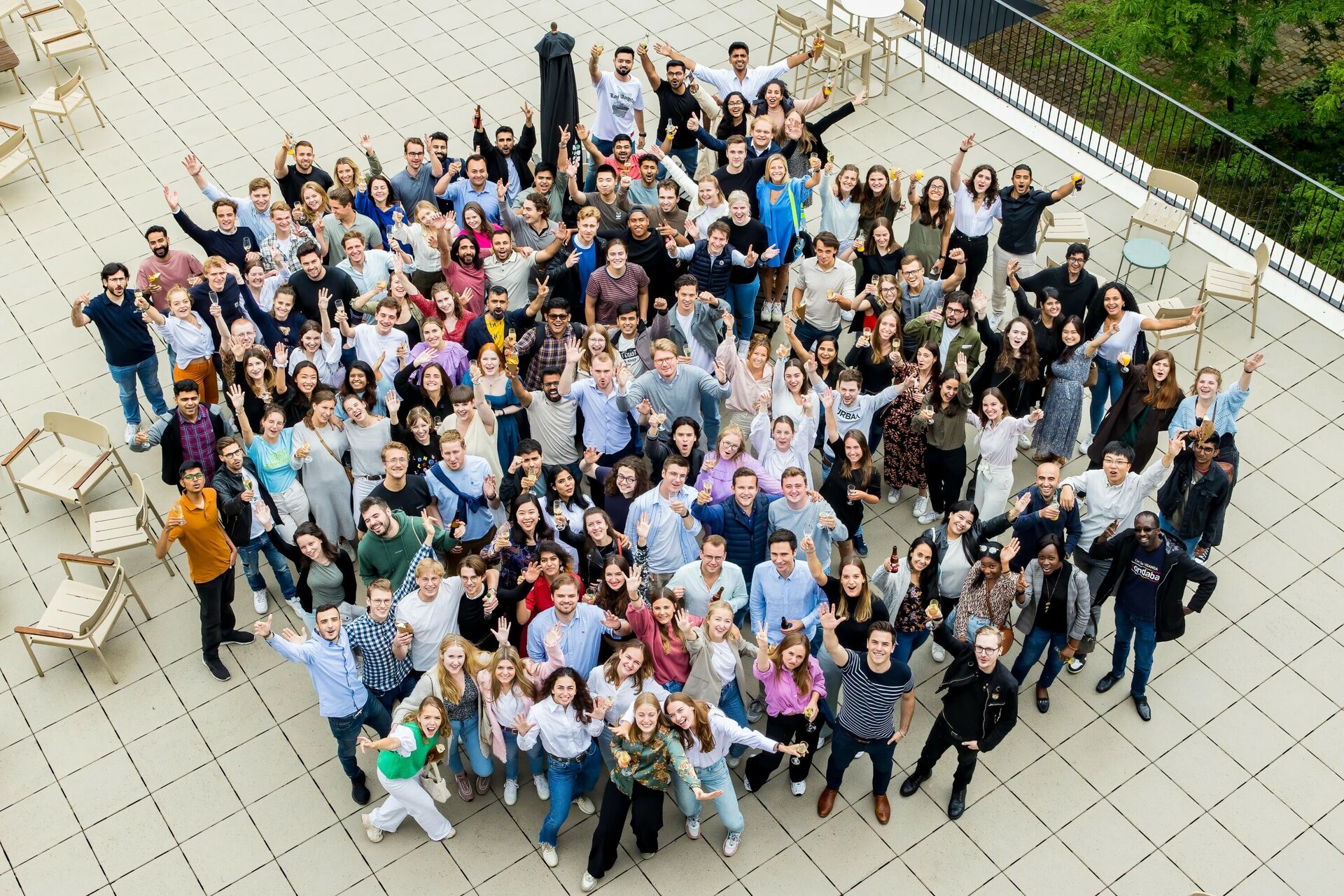
Full-Time Master's programs
Invest in yourself!
1 year. That's all you need to become a versatile, decisive professional who smoothly takes charge of their own professional journey. Choose your specialization from our list of master's programs and prepare for a hands-on education tailored to today's challenges in your industry. We look forward to meeting you, as you are today, and as a future alumnus.

Our offer for young graduates: 8 full-time master's programs

An array of career opportunities
At AMS you will launch your future career. Throughout the academic year, several activities will be organized at AMS by the Career Management Service that will inspire and help you in making a good career decision, including job interview trainings, career fairs, networking events, case evenings. We will support you in exploring your talents, interests and needs, relate these to what companies offer in terms of jobs and career opportunities, and prepare yourself for job interviews and assessments.

Your personal development journey: Global Leadership
Your personal development is a core element in the journey you will undertake during your year at AMS. With the award-winning Global Leadership track, we challenge and coach you to become more aware of who you are, how you cooperate with others, and what kind of career you want to pursue.

Top-ranked master's programs
When you choose Antwerp Management School, you enter the top 1% of business schools worldwide, because we are Triple Crown Accredited. That doesn't just sound fancy, it is a great achievement that we carry with pride.
AMS is also listed in numerous international rankings, like the Financial Times Ranking, the Eduniversal Rankings and the QS Rankings.

Want more information or study advice? Come and meet us!
Do you want to meet us & get more information? Make an appointment for a personal (Skype-)conversation, book a meeting on our campus, register for a (online) infosession or visit us at upcoming fairs.

AMS student's guide
Whether you're an international student or a local, equip yourself for success by delving into essential information about AMS and studying in Antwerp. Discover all you need to know to seamlessly transition into your master's program at AMS and make the most of your time in Antwerp.

Antwerp, the heart of Europe
Antwerp is world famous for its port, fashion, diamond and much more. Antwerp is located in the heart of Europe, cities as Amsterdam, Paris, London are within a few hours' reach.
Antwerp is a vibrant, creative city for investors and entrepreneurs, always open for new ideas and concepts.
And... last but not least: Antwerp is a true student city. This city will stay in your heart forever!

Our campus "The Boogkeers"
All our master's programs are taught at our campus "The Boogkeers", a beautifully renovated historical building in a the city center of Antwerp.
The left part is newly built and is an airy unit that carries on the rhythm of the adjoining restored building. The open house philosophy, so typical for AMS, fully takes shape in this new building.
#AMSpeople
Discover how our students, staff, faculty & alumni experience AMS.


